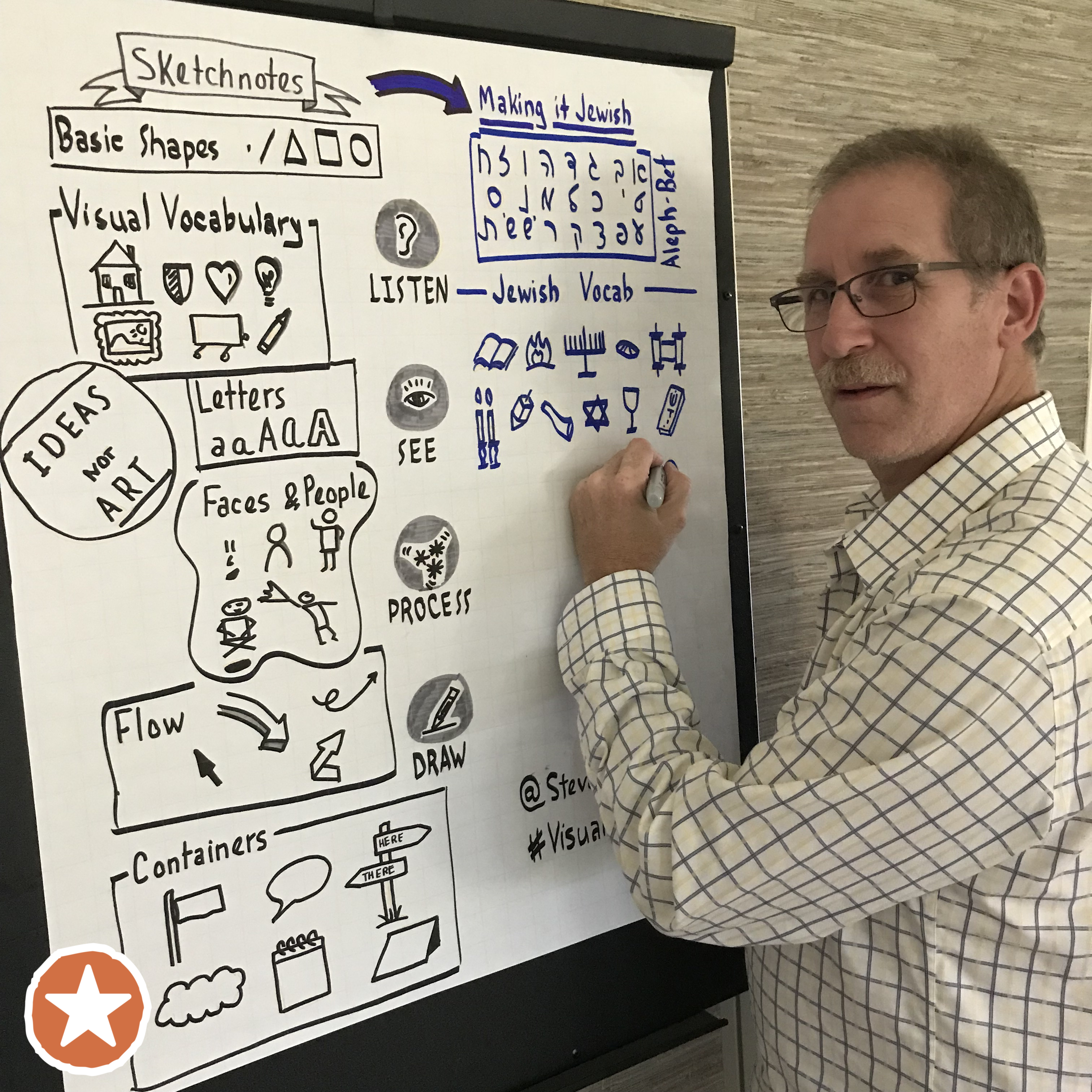Yitro: Delegation, Diversity, and the Decalogue

Part of an ongoing series that explores Torah through an ethic of social justice and building a world worthy of the Divine.
This week’s parsha, Yitro, is a biggie as it contains the first recitation of the Ten Commandments, aka the Decalogue (whether or not there are actually ten commandments in there is another question for another d’var Torah).
But we are not going to focus on that.
Rather, before God, Moshe, and the Israelites are ready to hear the Decalogue, Moshe (and, by extension, we) first need to learn a couple of lessons in leadership that are fundamental for an ethic of social justice. One piece of advice that Moshe receives is about the power of delegation, or, put differently, many hands make for lighter work. The second takeaway from the Torah text itself focuses on ensuring that, particularly for matters of import such as being in the Divine presence to receive the Ten Commandments, no one is left out.
Our parsha begins with Moshe’s father-in-law, Yitro, joining him and the Israelites in the desert. Yitro brings with him Moshe’s wife Zipporah and their two children, Gershom and Eliezer. After a warm reunion and some time spent bringing Yitro up to speed on the exodus from Egypt, Yitro observes Moshe adjudicating disputes between the people, while the people stood about Moshe (waiting to be heard) from morning until evening. The text suggests that Yitro shook his head at this whole scene, as he then says to his son-in-law (at Ex 18:14):
“What is this thing that you are doing to the people? Why do you act alone, while all the people stand about you from morning until evening?”
מָֽה־הַדָּבָ֤ר הַזֶּה֙ אֲשֶׁ֨ר אַתָּ֤ה עֹשֶׂה֙ לָעָ֔ם מַדּ֗וּעַ אַתָּ֤ה יוֹשֵׁב֙ לְבַדֶּ֔ךָ וְכׇל־הָעָ֛ם נִצָּ֥ב עָלֶ֖יךָ מִן־בֹּ֥קֶר עַד־עָֽרֶב׃
Moshe offers a reply along the lines of “Well, they come to me with questions about God so I answer them and teach them God’s laws.” Moshe seems not even to realize that being a sole adjudicator is an issue. He doesn’t seem to notice that this is causing a bottleneck — probably frustrating both to him, and to the Israelites, who all have other things to do.
Here Yitro gifts Moshe with the first lesson in leadership, giving his son-in-law a talking to and some terrific advice:
“The thing you are doing is not right; you will surely wear yourself out, and these people as well. For the task is too heavy for you; you cannot do it alone. Now listen to me. I will give you counsel, and God be with you! You represent the people before God: you bring the disputes before God, and enjoin upon them the laws and teachings, and make known to them the way they are to go and the practices they are to follow. You shall also seek out, from among all the people, capable individuals’ who fear God – trustworthy ones who spurn ill-gotten gain. Set these over them as chiefs of thousands, hundreds, fifties, and tens, and let them judge the people at all times. Have them bring every major dispute to you, but let them decide every minor dispute themselves. Make it easier for yourself by letting them share the burden with you. If you do this – and God so commands you – you will be able to bear up; and all these people too will go home unwearied.” (Ex. 18: 17-23)
The 18th century commentary Or HaChaim noted (Exodus 18:18 & Or HaChaim on Exodus 18:18:1 (sefaria.org)) how Moshe, even though he might only be somewhat weary at the beginning, “eventually he would become so weary, נבול תבול, that he would be unable to function at all. Yitro underlined this by saying: “you will not be able to carry on by yourself.”” In other words, by taking on everything himself, Moshe would eventually burn out. Alternatively, the Or HaChaim noted that the reason Yitro repeated the word “weary” “נָבֹ֣ל תִּבֹּ֔ל”, was simply because he wanted to illustrate how both Moshe and the litigants would become weary. By taking everything on himself, Moshe actually wasn’t helping anyone.
Yitro recognizes that leadership exists at all levels and in order for Moshe to succeed he must recruit others to assist him in his work. Not just anyone, mind you, but people who are similarly trustworthy and honest and God-fearing. This part is interesting as well – the text doesn’t specify that the leaders should have wealth or hereditary power, but rather have certain moral and ethical qualities.
Finally, Yitro’s recommendation (and some commentators view it as a commandment) to raise up fellow leaders to help meet the needs of the people is not a knock against Moshe’s capacity to judge. Rather, as also noted by the Or HaChaim (in the commentary on Ex. 18:22), “Yitro meant that his suggestion was intended to lighten Moshe’s burden, not that he would not be allowed to judge any other than the most difficult cases. The idea was that the other judges should share the burden together with Moshe.”
The Torah text then affirms that “Moshe heeded his father-in-law and did just as he had said” (Ex. 18:24). How do we heed Yitro’s advice in the work that we do? Indeed, there is so much burnout in the social justice space, and it can be hard to share the burden for all sorts of reasons. That said, how do we raise up leadership at all levels? How do we delegate and develop future potential? How can we better share the load of leadership?
Later, in the next chapter, God tells Moshe to tell the people to stay pure for the next couple of days and be ready for the third day, “for on the third day יהוה will come down, in the sight of all the people (כל־הָעָ֖ם), on Mount Sinai” (Ex. 19:11, emphasis added). On the third day God then spoke to the people, telling them the Ten Commandments (Ex. 20:1 and following). Note how God told Moshe that God would speak to all the people (i.e. not just the judges, or the priests, or the adults, or the men, or the cisgender folk, or the able-bodied, or any particular tribe). This is a second lesson in leadership. How do we ensure that our social justice work reaches out to “all the people”? How do we ensure that we welcome and affirm “all the people” in developing current and future leaders? How do we ensure that our virtual and physical spaces welcome and celebrate “all the people”?
This month, February, offers some guidance. In Canada and the United States this month is Black History Month, inviting us to “celebrate the history and achievements of Black people” while working for “a more equitable and just future”. There is much work to be done across North America for racial justice, and there is much work to be done to ensure our communities celebrate and reflect the racial and ethnic diversity of our community members. Some resources can be found here: Observe Black History Month by Addressing Oppression in our Communities: Use These Jewish Resources | Reform Judaism; A Jewish call to action during Black History Month – American Jewish World Service – AJWS; Jews of Color Initiative; Racial Justice – Reconstructing Judaism; Jews For Racial & Economic Justice | Home (jfrej.org); Resources — No Silence on Race; Jews of Colour Canada | Building community through identity and faith.
As well, February is Jewish Disability Awareness, Acceptance, and Inclusion Month, inviting us “to unite Jewish communities worldwide to raise awareness and champion the rights of all Jews to be accepted and included in all aspects of Jewish and community life like anyone else” (Jewish Disability Awareness, Acceptance & Inclusion Month – RespectAbility). More resources on JDAIM can be found here: What is Jewish Disability Awareness, Acceptance, and Inclusion Month? | Reform Judaism; 18 Ways Congregations Can Observe Jewish Disability Awareness, Acceptance, and Inclusion Month | Religious Action Center of Reform Judaism (rac.org); Reconstructionist Communities Make Disability Inclusion a Top Priority – Reconstructing Judaism.
Do you have further resources to recommend? If so, please share them!
Together may we follow Yitro’s advice and raise up new leaders and share the burdens of leadership, and may we strive to ensure we include and celebrate and affirm all the people (כל־הָעָ֖ם) in our communities, so that we may merit deeper connection with the Divine and build a world worthy of us all.


Rabbi Dara Lithwick, the lead builder at Builders Blog, is an advocate for LGBTQ2+ inclusion within diverse Jewish spaces and for Jewish inclusion in LGBTQ2+ spaces. When not at work as a constitutional and parliamentary affairs lawyer, Rabbi Dara chairs the Reform Jewish Community of Canada’s Tikkun Olam Steering Committee and is active at Temple Israel Ottawa, and this winter can be found serving as ski patrol at Sommet Edelweiss. She is a member of Bayit’s Board of Directors.
Illustrator Steve Silbert, a member of Bayit’s Board of Directors, is Lead Builder at Bayit Games.








